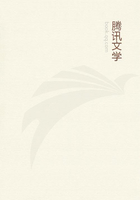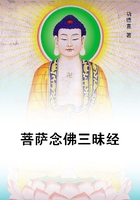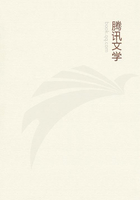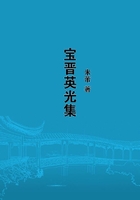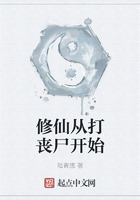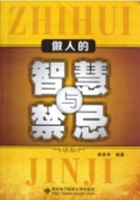PROGRESS OF CALVINISM
(a) In Switzerland.
/Calvini Joannis, Opera quae supersunt/ in the /Corp.
Reformatorum/, vols. xxix.-lxxxvii. Doumergue, /Jean Calvin, les hommes et les choses de son temps/, 1900-5. Kampschulte, /Johann Calvin, seine Kirche und sein staat in Genf/, 1899. Fleury, /Histoire de l'Eglise de Geneve/, 3 vols., 1880. Mignet, /Etablissement de la reforme religieuse et constition du calvinisme a Geneve/, 1877. Choisy, /La theocratie a Geneve au temps de Calvin/, 1897. /Cambridge Mod. History/, ii., chap. xi.
(Bibliography, 769-83). For complete bibliography, see /Diction.
Theologique/ (art. Calvin).
John Calvin, from whom the heresy takes its name, was born at Noyon in Picardy in 1509. In accordance with the wishes of his father he studied philosophy and theology at the University of Paris, where he was supported mainly from the fruits of the ecclesiastical benefices to which he had been appointed to enable him to pursue his studies.
Later on he began to waver about his career in life, and without abandoning entirely his hopes of becoming an ecclesiastic he turned his attention to law in the Universities of Orleans and Bourges. In French intellectual circles of this period a certain spirit of unrest and a contempt for old views and old methods might be detected. The Renaissance ideas, so widespread on the other side of the Alps, had made their way into France, where they found favour with some of the university professors, and created a feeling of distrust and suspicion in the minds of those to whom Scholasticism was the highest ideal.
Margaret of Navarre, sister of the king, showed herself the generous patron and defender of the new movement, and secured for it the sympathy and to some extent the support of Francis I. A few of the friends of the Renaissance in France were not slow to adopt the religious ideas of Luther, though not all who were suspected of heresy by the extreme champions of Scholasticism had any intention of joining in a movement directed against the defined doctrines or constitution of the Catholic Church.
As a student at Bourges, Calvin was brought into close relations with Melchior Wolmar, a German Humanist, who was strongly Lutheran in his tendencies, and through whom he became enamoured of Luther's teaching on Justification. On his return to Paris he was soon remarkable as a strong partisan of the advanced section of the university, and by his ability and determination he did much to win over the Renaissance party to the religious teaching that had become so widespread in Germany. As a result of an address delivered by Nicholas Cop, rector of the university, and of several acts of violence perpetrated in the capital by the friends of heresy Francis I. was roused to take action.
Calvin, fearing death or imprisonment, made his escape from Paris to Basle (1534). Here he published his first and greatest theological treatise, /Christianae Religionis Institutio/, which he dedicated to the King of France (1536). The work was divided into four sections, namely, God the Creator, God the Redeemer, Grace, and the External Means for Salvation. Both in its style and in its arguments drawn from the Scriptures, the Fathers, and the theologians of the Middle Ages, it was far superior, at least for educated readers, to the best that had been produced by Luther and even to the /Loci Communes/ of Melanchthon.
He arrived at Basle at a time when a crisis had arisen in the political and religious development of Geneva. For a long period the House of Savoy was seeking for an opportunity to annex the territory of Vaud extending along the Lake of Geneva, and the episcopal cities of Geneva and Lausanne. Berne, too, had aspirations of a similar kind.
The authorities of Berne, having adopted the Zwinglian doctrine, thought that in it they had a means at their hand to detach Geneva and Lausanne from any sympathy with Savoy and to secure these territories for themselves. They despatched preachers to Geneva, where there were already two political factions, one advocating a closer alliance with Savoy, another clamouring for a union with Berne. The supporters of Berne rallied round William Farel and the Zwinglian ministers, while the friends of Savoy undertook to champion the old religion. The whole struggle was at bottom political rather than religious, but the triumph of the republican adherents of Berne meant victory for the reforming party in Geneva. The Duke of Savoy issued a declaration of war against the rebels to whom the Canton of Berne had pledged support (1534). As a result the forces of Savoy were driven out of Geneva and the Vaud, a close union was formed between Geneva and Berne, and every effort was made to spread the new religion in the city and among the Vaudois. A Zwinglian university was established at Lausanne, which exercised a great influence in propagating the new doctrine, and which had the honour of counting among its students Theodore Beza[1] the most gifted and learned assistant of Calvin.
But though the Vaudois had been won over, Geneva was by no means secured for the reformers. Farel and his followers, finding themselves involved in serious difficulties, appealed to Calvin to help them in completing the work they had begun. In 1536 Calvin accepted this invitation, and took up his residence at Geneva. Gifted with great powers as an organiser and administrator he soon restored order in the city, and won over the people to his doctrines. Himself a man of very strict notions, in whose eyes all even the most harmless amusements appeared sinful or dangerous, he was determined that his followers must accept his views. Under his rule Geneva, formerly so gay, became like a city of death, where all citizens went about as if in mourning.


